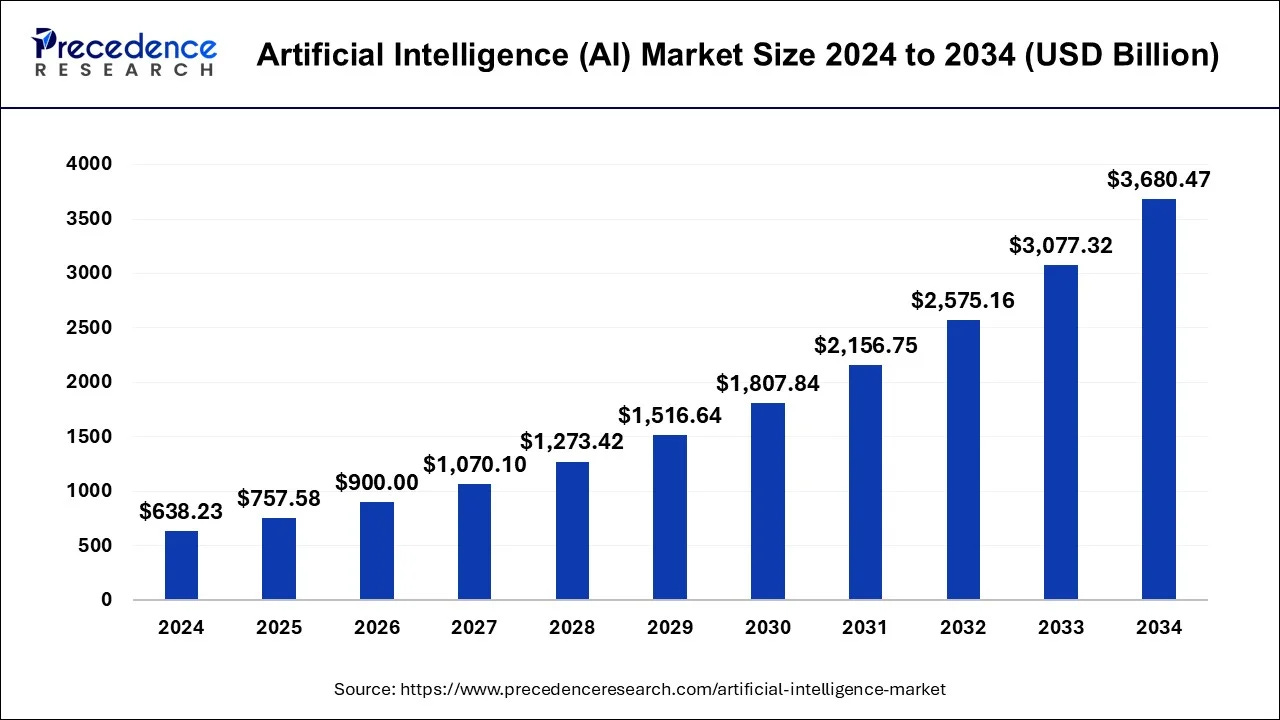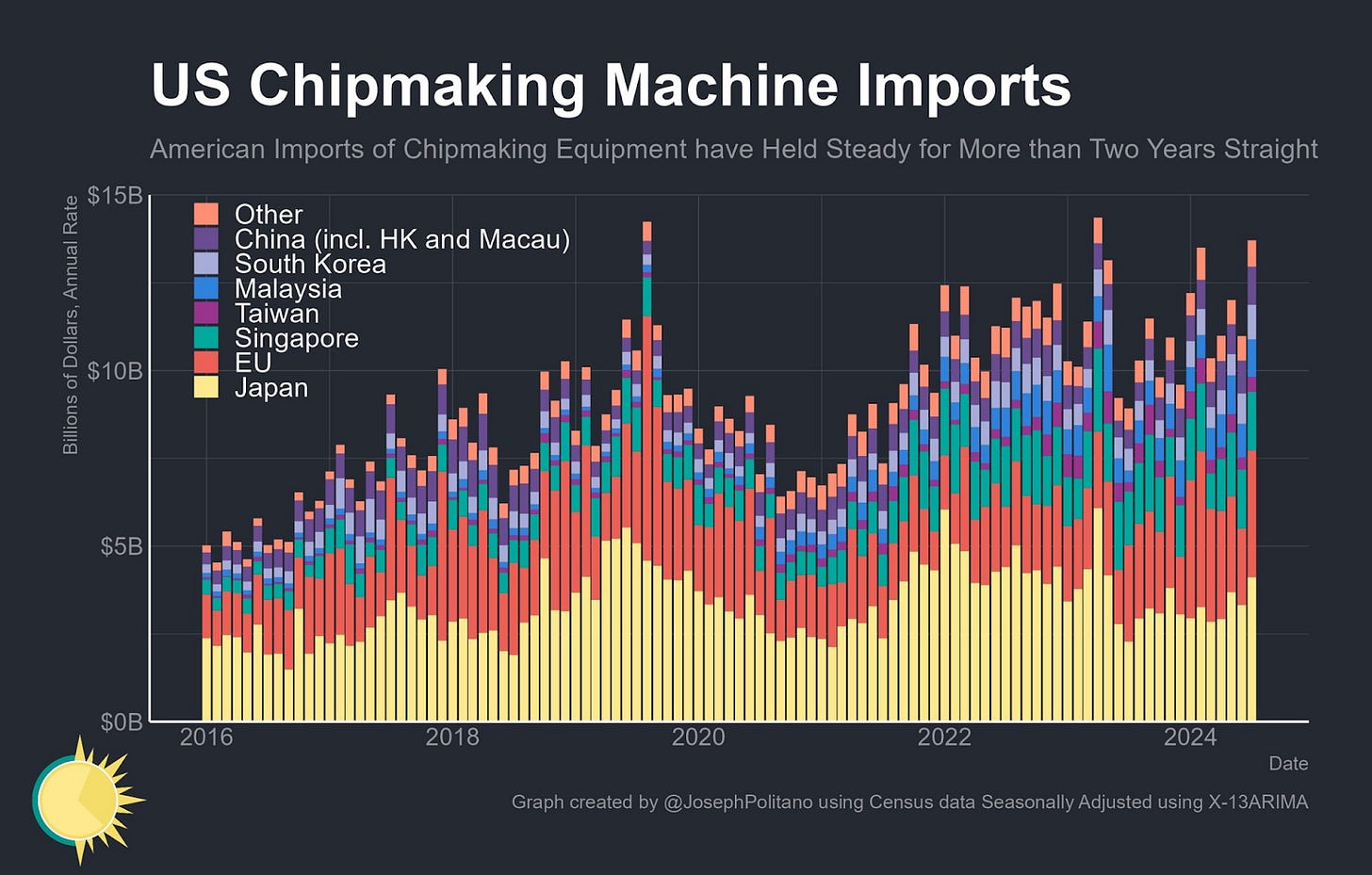With US semiconductor companies confronting the threat of DeepSeek and escalating multi-sectoral trade tariffs, a European AI stock is positioned to expand within the new and dynamic landscape.
While the Semiconductor Industry Association argued that tariffs would further erode US “technological competitiveness,” President Donald Trump renewed threats on January 28 to impose a "100% tax" on foreign-made semiconductors.
The controversial tariff proposal is part of Trump's strategy to incentivize domestic manufacturing as the US appears increasingly dependent on external, advanced chip technology. Most recently, Trump announced on February 10 a 25% tariff on all steel and aluminum imports to the US.
European Union (EU) and US relations have frayed since the inauguration of Trump. Vice President JD Vance made a speech on Friday at the Munich Security Conference, where he indicated that the US would no longer support Europe if it continued to suppress political groups and arrest citizens for free speech violations.
In response, German Defense Minister Pistorius labeled the criticism as "unacceptable." EU diplomat Kaja Kallas expressed surprise at Vance's "lecturing."
Europe Enters AI Race with Massive Investment
Vance also criticized Europe on February 10 during his speech at the Paris AI Summit. He described the EU's Digital Services Act and the General Data Protection Regulation as "onerous international rules" that created unnecessary hurdles for businesses.
A day later, European Commission President Ursula von der Leyen defended the EU position on AI. She vowed to take "firm and proportionate" measures to deal with tariffs while announcing AI investments.
"We aim to mobilize a total of 200 billion euros for AI investments in Europe,” she told the Summit, as the US encounters new competitive entrants in the AI race.
This comes as China's low-cost AI DeepSeek launch raised questions about US AI leadership just days after the announcement of the US project to expand AI capabilities under the name of Stargate.
DeepSeek Is ‘Good News' for European AI Companies
If DeepSeek "can develop such a model for only €5.75 million, it’s good news for Europe because they could do it for a limited budget,” Philippe Notton, CEO of SiPearl, a European company developing processors for supercomputers, said.
SoftBank Group Corp., Sam Altman-led OpenAI, Oracle Corp., and United Arab Emirates-based MGX have said they will back the $500 billion initiative.
Meanwhile, Stargate's main backer, SoftBank, warned on February 12 the project not to rely on its previous pledge of $500 billion in equity funding following a loss of $2.42 billion in the last quarter.
This development provides leverage to Europe's AI ambitions, with hundreds of billion euros worth of investment amounting to a significant portion of the entire market size.

Tariffs to Hit US-based Chip Manufacturers
The US is highly dependent on a single chip manufacturer, importing 92% of its leading-edge chips from Taiwan Semiconductor Manufacturing Co. (TSMC).
This reliance may complicate matters for Trump as he looks to tariff foreign-made semiconductors in an effort to reshore domestic production of advanced chips that are used for AI, among other applications.
“The US doesn’t have the capacity to manufacture anywhere near a similar volume of equivalent devices," Tim Culpan, a Taipei-based former Bloomberg Opinion columnist, said. "It would take months, if not years, to build the factories."
However, California-based Anduril Industries' founder, Palmer Lucky, dismisses the idea that it would take the US years to develop high-tech domestic manufacturing. "I’m pro tariffs until we have our own house in order," he said on the Shawn Ryan Show. "It is easier than ever to set up advanced manufacturing. It’s just a matter of will."
Trump Sanctions Could Hurt US Semiconductor Companies
If Trump imposes chip tariffs, it could isolate US semiconductor companies from critical supply chains and technology while squeezing their revenues, given its dependence on TSMC. The US could fall further behind in semiconductor manufacturing investment if it proceeded with tariffs.
As the primary supplier of AI chips for Nvidia, TSMC manufactures processors for iPhones and AMD, as well as phone chipsets for Qualcomm. TSMC manufactures the majority of Apple’s custom-designed chips, including the A-series processors for iPhones and the M-series chips for Macs and iPads.
“What I think Trump really wants is for TSMC to kiss the ring and pledge to invest more in the US,” Culpan argued.
However, Anduril's Lucky thinks that Trump "instinctively understands" that the US needs tariffs to bring manufacturing back to the country in a way that "globalist elites" do not.

ASML to Benefit from Selling EUV Technology
As the US seeks to reshore the production of advanced chips, it faces the challenges of building an infrastructure from scratch. This will require technology for fabricating ever-smaller, more powerful chips, such as Netherlands-based ASML Holdings' EUV (extreme ultraviolet) lithography.
TSMC recently started the production of advanced 4-nanometer chips in 2025 in its Arizona fab. However, it has yet to produce the more advanced 3nm and 5nm chips as it lacks the machine to make them.
TSMC received its first order to start manufacturing advanced chips in its Japan fab, but no plans have been announced for its Arizona plant.
There is growing speculation among analysts that tariffs might be used to pressure TSMC into investing more heavily in US production.
Trump May Push for ASML's NA EUV at Arizona Plant
Although not an official White House position, Trump may push for ASML’s machines to be installed at the TSMC plant in Arizona. The High Numerical Aperture (NA) EUV machines are manufactured and supplied by Europe's ASML.
ASML controls more than 90% of global lithography machines. Intel secured all of ASML's EUV stock in 2024, while other players like Samsung also use AMSL's machines for advanced chips.
ASML reported a backlog of €7.10 billion in Q4 sales, with €3 billion corresponding to EUV machines. The company sold 14 EUV machines in Q4 at a price of $370 million each.
The US doesn’t have a significant domestic EUV machine manufacturer, meaning it is entirely reliant on ASML. An effort to increase production in the US would likely require importing more of the machines from ASML.

ASML Co-operates with Trump Administration
As tensions between the US and China intensify amid the AI race, the technological edge afforded by ASML could secure further exemptions from potential tariff measures applied by the Trump Administration against Europe.
ASML received an exemption from China export restrictions imposed by the US in December. China accounts for around 20% of ASML sales, down from 40% previously.
“We do not expect any direct material impact on our business,” ASML said in response to the new US rules, maintaining its overall outlook for 2025.
The company is still able to sell deep ultraviolet systems (DUV) in China while pushing its new 3800E system for cutting-edge chips. DUV revenue grew 4% in 2024, and EUV declined 9% year-on-year, suggesting China continues to represent a large share of the company's revenues.
Disclaimer:
Any opinions expressed in this article are not to be considered investment advice and are solely those of the authors. European Capital Insights is not responsible for any financial decisions made based on the contents of this article. Readers may use this article for information and educational purposes only.
This article is from an unpaid external contributor. It does not represent Benzinga’s reporting and has not been edited for content or accuracy.
© 2025 Benzinga.com. Benzinga does not provide investment advice. All rights reserved.
Trade confidently with insights and alerts from analyst ratings, free reports and breaking news that affects the stocks you care about.